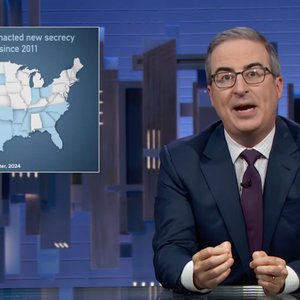

After controversial executions raised questions of government competence or misconduct, legislatures in two states have responded with bills taking sharply different approaches to the questions of government accountability and public oversight.
Following an execution in which Nebraska Department of Corrections officials closed the curtain on fourteen crucial minutes of the execution of Carey Dean Moore, the Nebraska Senate Judiciary Committee heard testimony on March 7, 2019 on a bill that would mandate that two legislators witness an execution and require that eyewitnesses be permitted to observe the entirety of an execution from the moment the condemned prisoner enters the execution chamber to the time death is declared or the execution is called off. By contrast, an Arkansas state senator has responded to a lawsuit by pharmaceutical companies challenging widespread improprieties in the state’s procurement of execution drugs with a proposal that the state adopt the most extreme and punitive drug-secrecy law in the country.
In her statement to the Judiciary Committee, Nebraska State Sen. Patty Pansing Brooks of Lincoln (pictured, left), who sponsored Legislative Bill 238, said legislation was necessary to redress the “profound” lack of transparency in the state’s execution process. “This bill is not about whether the death penalty is right or wrong,” she said, “it’s about whether we have proper government accountability and transparency in carrying out this grave and somber event.”
Corrections Director Scott Frakes, whom committee members criticized for failing to appear personally to respond to questions about the Moore execution, sent a letter to the committee opposing the bill. Omitting reference to the periods of the execution in which the execution-IV line was inserted and the curtain was dropped, Frakes claimed that “[w]itnesses observe the entire execution process.”
Referring legislators to the Death Penalty Information Center’s November 2018 report on execution secrecy in the United States, DPIC Executive Director Robert Dunham told the committee of numerous incidents in which eyewitness observations could have resolved serious questions about problematic executions. Dunham told the committee that in a government by and for the people, the state “shouldn’t hide important information from the people.”
In Arkansas, a bill introduced in the state senate sought to further conceal the state’s controversial execution practices. On March 6, the Senate Judiciary Committee approved a bill sponsored by State Sen. Bart Hester (pictured, right), that would broadly exclude from public disclosure any documents, records, or information that could lead to the discovery of the state’s sources of execution drug or the identification of drug manufacturers or distributors. The bill also would make reckless disclosure of such information a felony.
Arkansas’s conduct in procuring execution drugs, which led drug distributor McKesson Medical-Surgical to sue the state alleging that Arkansas had deliberately misled the company to believe that the drug purchase was for legitimate medical purposes, raised questions concerning the need for transparency in the execution process. Those questions were heightened following evidence of additional problems during executions with those drugs.
After Arkansas state courts ruled that the state’s prisons must disclose portions of the pharmaceutical drug and packaging labels for the drugs it intended to use in executions, the Department of Corrections said it was suspending its search for new supplies of execution drugs until the legislature adopted even broader secrecy laws.
Hester downplayed the importance of transparency concerns, calling a March 8 meeting of a legislative Freedom of Information Act Task Force “a waste of my time.” Refusing to attend the meeting, Hester said “[a]nything that they have to say on it I don’t think has value.”
In an email to the Associated Press, Dunham said, “If a state wanted to break the law and breach contracts with impunity and hide its misconduct from the public, [the Arkansas bill] is the type of bad-government law it would pass.”
Paul Hammel, Execution witnesses should see entire process, expert tells Nebraska Legislature, Omaha World-Herald, March 8, 2019; JoAnne Young, Lincoln Journal Star, Bill would end execution secrecy, March 8, 2019; Andrew DeMillo, Arkansas lawmakers advancing more limits on public records, Associated Press, March 10, 2019; Ginny Monk, Public-records task force shut out; sponsor declines panel’s view on execution-drug measure in Arkansas, Arkansas Democrat-Gazette, March 9, 2019.
Read DPIC’s report, Behind the Curtain: Secrecy and the Death Penalty in the United States. See Lethal Injection and Secrecy.
Lethal Injection
Jun 06, 2024

Idaho: New Death Sentence, Updates on Executions, and Lethal Injection Drug Purchase
Lethal Injection
Mar 18, 2024
